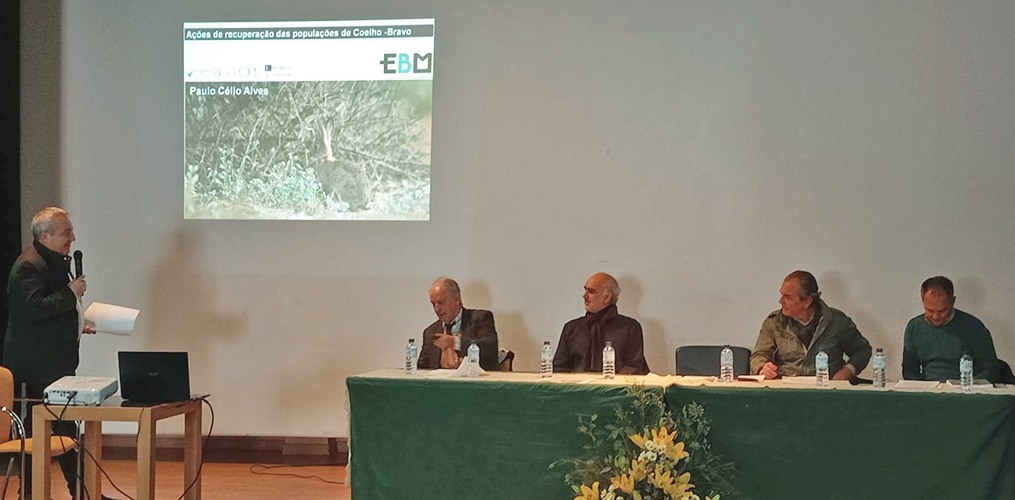
LifeWatch ERIC has contributed to the scientific debate on defining the conditions in which hunting can play a potentially positive role in biodiversity conservation, by presenting models of innovative and sustainable management of natural capital. In certain conditions, hunting could be used as a conservation measure, when a lack of natural predators drives populations of protected species to numerical overgrowth and the severe overexploitation of their trophic resources; this is what was argued at the 10th edition of the International Hunting Fair (FICAR), a biannual event, which took place in Rosal de la Frontera in the province of Huelva. In parallel, through the IBERLifeWatch initiative, LifeWatch ERIC promoted progress in Iberian biodiversity cooperation, as a community of good practices in science, technology and innovation, with the involvement of important stakeholders of the Alentejo-Algarve-Andalusia Euroregion.
LifeWatch ERIC collaborates with the Mértola Biological Station (Portugal), which in turn collaborates with the IREC Institute for Research on Hunting Resources of the Spanish Higher Council for Scientific Research (CSIC), forming an Iberian triangle that focuses on the scientific, innovation and sustainability factors of resources for the sustainable socioeconomic growth of small municipalities in this type of region, in synergy with the 2030 SDGs and the EU Green Deal.
As documented in publications by Jorge Cassinello Roldán, CSIC senior scientist and IREC director, who has a PhD in Biological Sciences specialising in the study of ecology and animal behaviour; new scientific knowledge helps manage hunting activity in a way that is more in line with the defence of the environment, and promotes the use of natural resources in a sustainable manner, ensuring its continuity for future generations.
One of the main activities in which LifeWatch ERIC was involved at FICAR was the session entitled ‘Innovative and sustainable management of natural capital: Hunting as an ally of conservation’. Moderated by Juan Miguel González-Aranda, LifeWatch ERIC CTO, the following speakers presented: Paulo C. Alves, director of the Mértola Biological Station, who presented the paper ‘Cross-border cooperation in conservation’; Vicente Jurado Doña, Professor of Ecology at the University of Seville, with a presentation entitled ‘Dehesa y seca de la encina‘; Javier Castroviejo Bolívar, former director of the Doñana Biological Station, whose presentation was ‘Hunting as an ally of conservation’; José María Liñán Cruz, professional hunter, with the theme ‘Man as administrator of nature’, and Diego de los Santos Parejo, LifeWatch ERIC researcher, with the presentation ‘Hunting and conservation of the Iberian lynx, the story of a miracle’.
In his speech, Professor Paulo C. Alves gave examples of the role of hunting in controlling the rabbit population in the Iberian Peninsula, with cases of good Iberian cooperation practices for the conservation of rabbit populations using their censuses and hunting in a sustainable way, a field in which the Mértola Biological Station is a research centre of reference.
LifeWatch ERIC also participated in the inauguration of FICAR, chaired by Loles López, Councillor for Social Inclusion, Youth, Families and Equality of the Junta de Andalucía. And at the LifeWatch ERIC stand, meetings were held with her and other authorities and representatives of various social sectors and territorial areas, such as José Enrique Borrallo Romero, General Director of Protected Natural Spaces of the Junta de Andalucía; Duarte Lobo, President of the Portuguese Confederation of Micro-SMEs, Small and Medium Enterprises (CPPME), and Antonio Carlos Vázquez, Mayor of Rosal de la Frontera.